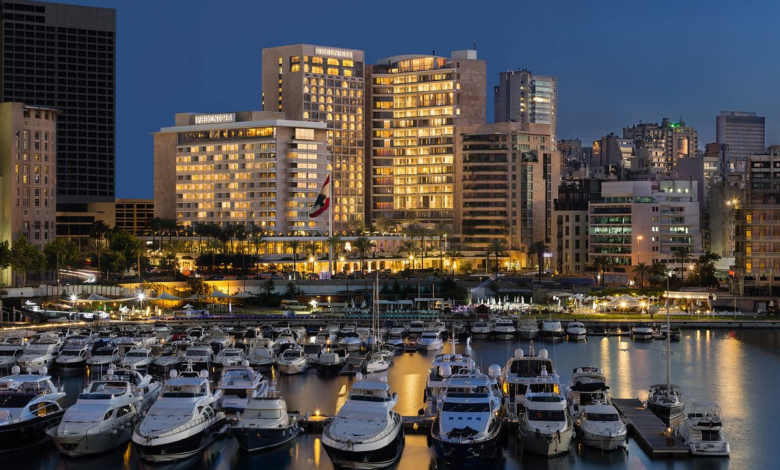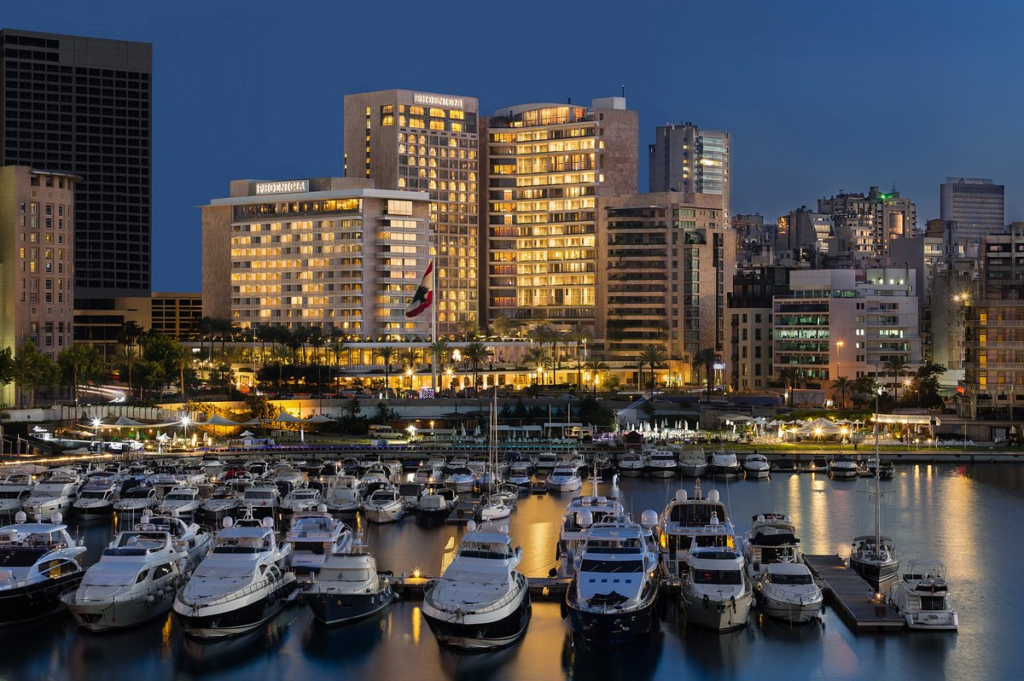A tourist travel guide to Lebanon when visiting it

Lebanon, a small country located in the Middle East, offers a rich history, diverse culture, stunning landscapes, and delicious cuisine. Here are some key points to consider when planning a trip to Lebanon:
- Historical Sites: Lebanon is home to numerous historical sites that reflect its rich heritage. Be sure to visit the ancient city of Baalbek, known for its impressive Roman ruins, including the Temple of Bacchus and the Temple of Jupiter. Explore the archaeological site of Byblos, one of the oldest continuously inhabited cities in the world, and walk through its well-preserved ancient streets. In Beirut, the capital city, you can witness the contrast between modern architecture and historical landmarks like the Roman Baths, the Mohammad Al-Amin Mosque, and the National Museum.
- Natural Beauty: Despite its small size, Lebanon boasts diverse landscapes that are perfect for nature lovers. The picturesque Qadisha Valley, a UNESCO World Heritage site, offers breathtaking views, hiking trails, and ancient monasteries carved into the cliffs. The Cedars of God, a forest of ancient cedar trees, holds great cultural and historical significance. For coastal beauty, head to the vibrant city of Jounieh or visit the stunning beaches in the southern city of Tyre.
- Delicious Cuisine: Lebanese cuisine is renowned worldwide for its freshness, flavors, and variety. Indulge in mezze, a selection of small dishes that include hummus, tabbouleh, falafel, and kebabs. Don’t miss the opportunity to try the national dish, kibbeh, which consists of minced meat and bulgur wheat. Explore the local street food scene and treat yourself to delicious manakish (Lebanese pizza) or shawarma. Lebanon is also known for its excellent wineries, so sampling local wines is a must.
- Vibrant Nightlife: Beirut is famous for its vibrant and cosmopolitan nightlife. The city offers a wide range of trendy bars, rooftop lounges, and nightclubs where you can dance the night away. Hamra Street and Gemmayze are popular areas with a plethora of bars and restaurants, while Mar Mikhael is known for its hipster vibes and artistic scene.
- Skiing in the Mountains: Lebanon’s mountainous terrain provides excellent opportunities for skiing and snowboarding during the winter season. Head to the ski resorts of Faraya Mzaar or Cedars, where you can enjoy the slopes and stunning mountain views just a short drive away from Beirut.
It’s always a good idea to consult up-to-date travel resources, such as travel guides, government websites, or reputable travel blogs, to get the most current and detailed information about travel and tourism in Lebanon. These sources can provide you with specific articles and practical tips to enhance your travel experience in the country.

Here are some more details about travel and tourism in Lebanon:
- Religious Sites: Lebanon is a country with religious diversity, and it is home to several important religious sites. In addition to the historical significance of places like Baalbek and Byblos, you can explore spiritual landmarks such as the Harissa Shrine, which overlooks the Bay of Jounieh and is dedicated to Our Lady of Lebanon. Visit the Qadisha Valley to discover ancient monasteries, including the Monastery of Qozhaya and the Monastery of Saint Anthony the Great. These sites offer a glimpse into Lebanon’s spiritual traditions and provide serene and picturesque settings.
- The Mediterranean Coastline: Lebanon boasts a beautiful Mediterranean coastline that stretches for about 225 kilometers. Along this stretch, you’ll find charming coastal towns, sandy beaches, and crystal-clear waters. Popular coastal destinations include the vibrant city of Beirut, where you can enjoy the Corniche promenade, beach clubs, and waterfront dining. Visit the picturesque town of Batroun, known for its ancient Phoenician wall and charming old souk. Further south, explore the coastal towns of Sidon and Tyre, rich in historical sites and delicious seafood restaurants.
- Outdoor Activities: Lebanon offers a range of outdoor activities for nature enthusiasts and adventure seekers. The country’s mountains, including the Lebanon Mountain Range and the Mount Lebanon Range, provide opportunities for hiking, rock climbing, and mountain biking. You can also go paragliding in Jounieh or take a boat trip along the coast for snorkeling or diving adventures. The Kadisha River is ideal for rafting, while the Chouf Biosphere Reserve offers opportunities for birdwatching and wildlife spotting.
- Festivals and Events: Lebanon hosts various cultural and music festivals throughout the year, adding to the vibrant atmosphere. The Baalbek International Festival, held in the ancient city of Baalbek, showcases world-class performances against the backdrop of the historic ruins. The Beiteddine Art Festival, held in the Beiteddine Palace, features concerts, theater performances, and art exhibitions. During the summer, many towns and cities also organize local festivals that celebrate Lebanese culture, cuisine, and traditions.
- Lebanese Hospitality: One of the highlights of visiting Lebanon is experiencing the warm hospitality of its people. Lebanese locals are known for their friendliness, generosity, and love for sharing their culture. Don’t be surprised if you’re invited to join a family gathering, taste homemade specialties, or engage in lively conversations with locals. Embrace the genuine warmth and openness of the Lebanese people, and you’ll create lasting memories and connections during your trip.
These additional aspects of travel and tourism in Lebanon showcase the country’s cultural heritage, natural beauty, and warm hospitality. Whether you’re exploring historical sites, enjoying coastal delights, or engaging in outdoor adventures, Lebanon offers a diverse range of experiences that will leave you captivated by its charm.

Here are more details about travel and tourism in Lebanon:
https://youtravel.tp.st/9JhAiw6R
- Wine Tourism: Lebanon has a long history of winemaking, dating back thousands of years. The country is known for producing excellent wines, particularly reds and whites made from indigenous grape varieties. Explore the picturesque vineyards of the Bekaa Valley, where many wineries are located, and enjoy wine tastings and tours. Some renowned wineries to visit include Château Ksara, Château Kefraya, and Domaine des Tourelles. Wine tourism in Lebanon offers a unique opportunity to learn about the local wine culture and indulge in the flavors of the region.
- Shopping and Souvenirs: Lebanon is a shopper’s paradise, offering a mix of traditional markets, modern shopping centers, and boutique stores. Explore the vibrant souks (markets) in Beirut, such as the famous Souk el Tayeb, where you can find local produce, handicrafts, and artisanal products. Discover the bustling streets of Hamra and Verdun for high-end fashion and retail brands. If you’re looking for traditional Lebanese souvenirs, consider purchasing items like handmade soap, olive oil, spices, traditional crafts, or intricately woven textiles.
- Cultural Heritage: Lebanon’s rich cultural heritage is reflected in its architecture, museums, and cultural institutions. Visit the Sursock Museum in Beirut, which showcases modern and contemporary art from Lebanon and the region. Explore the National Museum of Beirut to learn about the country’s ancient history, including its Phoenician, Roman, and Ottoman past. Don’t miss the Jeita Grotto, a stunning natural wonder that consists of interconnected limestone caves, offering an otherworldly experience.
- Lebanese Cuisine Experiences: Lebanese cuisine is renowned worldwide for its freshness, flavors, and variety. In addition to enjoying the local delicacies at restaurants, you can participate in culinary experiences to learn the art of Lebanese cooking. Take part in cooking classes where you’ll learn to prepare traditional dishes like tabbouleh, hummus, and stuffed grape leaves. You can also join food tours that take you through local markets, street food stalls, and hidden culinary gems, allowing you to savor the authentic flavors of Lebanon.
- Skiing and Winter Sports: Lebanon’s mountainous terrain provides excellent opportunities for winter sports enthusiasts. Head to the ski resorts in the Mount Lebanon Range, such as Mzaar Kfardebian (formerly Faraya Mzaar), to enjoy skiing, snowboarding, and other snow-related activities. The resorts offer well-groomed slopes, modern facilities, and stunning mountain views. Whether you’re a beginner or an experienced skier, Lebanon’s ski resorts cater to all levels of expertise.
- Ecotourism and Nature Reserves: Lebanon is making efforts to promote ecotourism and preserve its natural landscapes. Explore the Horsh Ehden Nature Reserve, renowned for its diverse flora and fauna, including the majestic cedar trees. The Tannourine Cedar Forest Nature Reserve is another protected area where you can hike through ancient cedar forests and enjoy breathtaking views. These nature reserves provide opportunities for birdwatching, hiking, and reconnecting with Lebanon’s natural heritage.
These additional aspects of travel and tourism in Lebanon highlight the country’s wine culture, shopping experiences, cultural heritage, culinary delights, winter sports, and focus on sustainable tourism. Lebanon offers a rich tapestry of experiences that cater to various interests and promises to leave visitors with lasting memories.



